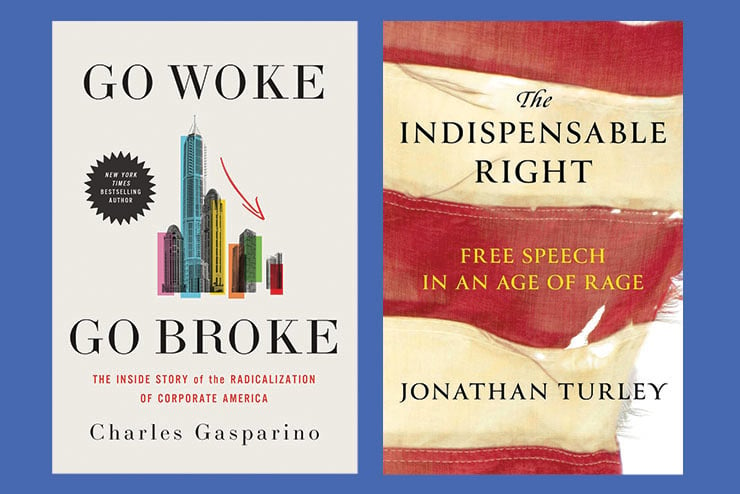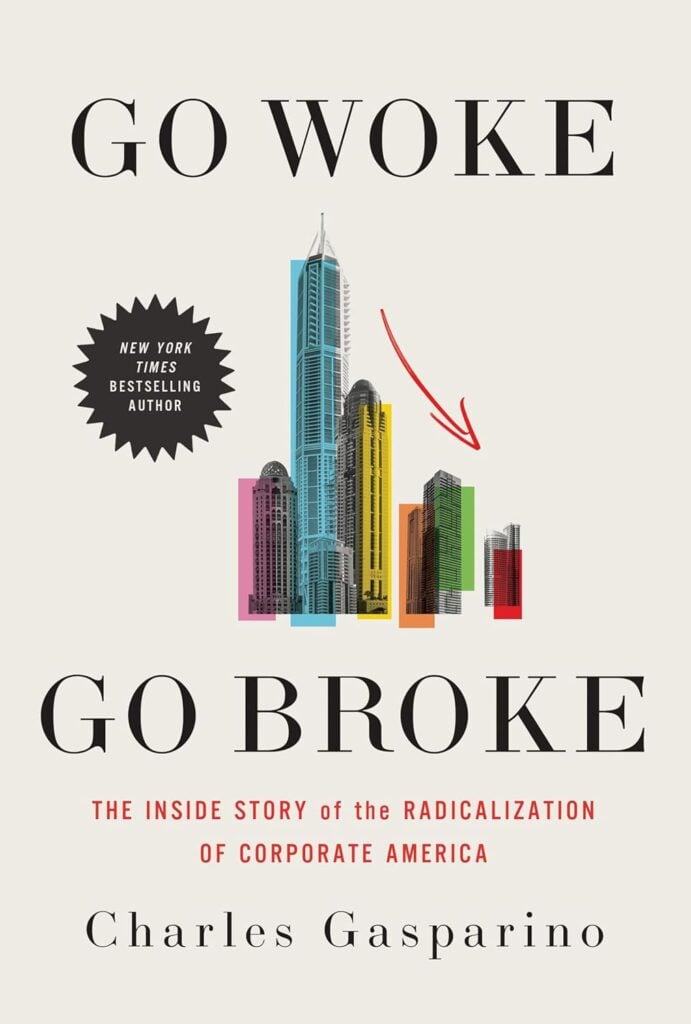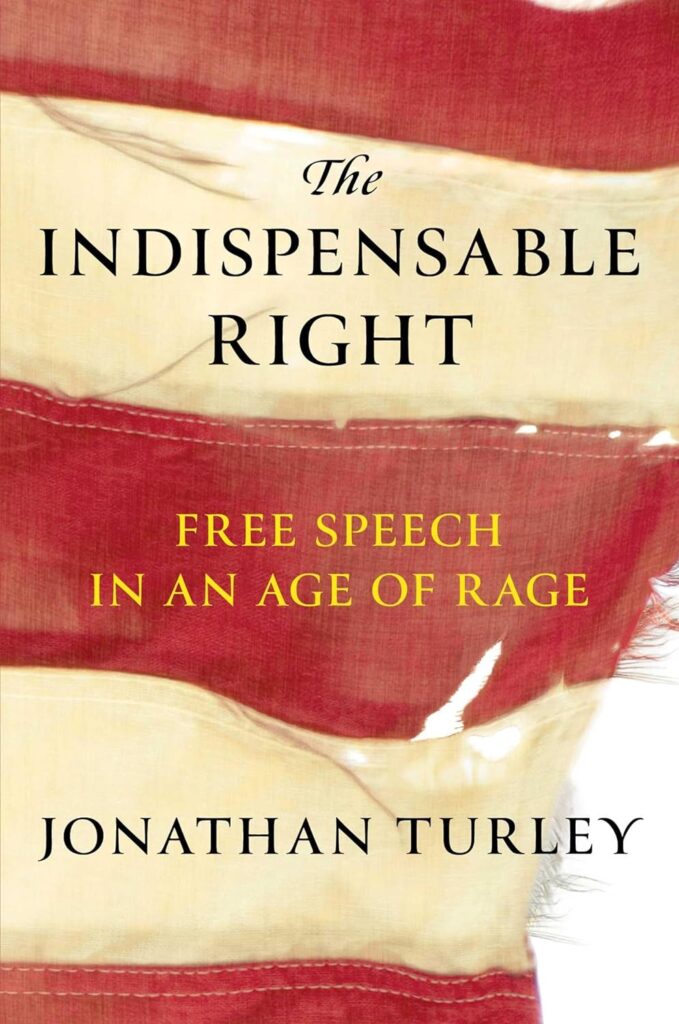Go Woke, Go Broke: The Inside Story of the Radicalization of Corporate America, by Charles Gasparino (Center Street; 320 pages; $30.00). Someone call the Guinness brothers. Charlie Gasparino’s latest book has set several new world records. Unfortunately, these feats rival the Guinness entries for “Loudest Burp” and “Most People Brushing Their Teeth Simultaneously” in terms of significance. First, Go Woke, Go Broke earns the distinction of “Fastest Retraction of a Book’s Title.” Gasparino soft pedals Go Woke’s titular claim in the introduction’s very first sentence when he hedges, “Go woke, and you just might go broke.”
Thirty dollars may seem like a waste of money for a book that walks itself back in its opening line. But these are funds well spent. Go Woke rivals the Oxford English Dictionary and Encyclopedia Britannica as a store of knowledge—in this case as a repository of clichés. Intelligent readers will rightly be “mad as hell” (page 4) as they wade through Gasparino’s quagmire of stale phrases. Unfortunately, his editors weren’t “working day and night” (12) to rid the text of these painfully trite adages, which don’t just litter the book but amount to “part of its DNA” (2).
And those examples are just the “tip of the iceberg” (2). As I tell my undergraduate students, clichés do nothing to “advance the cause” (11) or their arguments. Clichés should be as “rare as Haley’s Comet” (14) to earn a good grade in college writing. After I’ve “laid the groundwork” (18) in our classroom, my students rarely confuse a cliché with a well-turned phrase. When they edit, my students remove any offending cliché since “like pornography, you know it when you see it” (15). I’m only two chapters into Go Woke, yet Gasparino’s fire hose of clichés is already “off to the races” (36). I found it “hard to keep track” (44) of his witless diction so let’s just “split the baby” (10) and move on before “all hell breaks out” (9).
Gasparino goes full linguistic finance bro when he wanders out of cliché land. Funds focused on sustainability and ethics are “a shitty investment strategy” that “frankly sucks” whereas shareholder capitalism is “hard for any activist to f— with.” If CEOs followed progressive demands to improve the world, “they would f— it up.”
As news broke this summer that Chik-fil-A’s owners donated to socially conservative causes, Gasparino records a mercenary Goldman Sachs financier looking up from his screen long enough to tell his coworkers that Chik-fil-A’s CEO “might be a bad dude.” He finds their protests even shallower than his first take shows. For all Goldmaneers know, Chik-fil-A’s Manhattan franchise might be owned by “some dude in Ghana.” Duuude, I call dibs on the next beer pong game. But let me put down this brewski and plow through chapter three first.
(Mark G. Brennan)
The Indispensable Right: Free Speech in an Age of Rage, by Jonathan Turley (Simon & Schuster; 432 pp., $30.99). The right of free speech is perhaps America’s greatest idea, since it underpins all other rights. Yet it is all too often the subject of intense debate, mainly stemming from whether free speech is a natural right or merely a function for fostering the smooth development of society.
Jonathan Turley, who supports the former position, is the right person to explain how this conflict has found legal expression. He holds the Shapiro Chair for Public Interest Law at George Washington University Law School, has worked on numerous cases, regularly appears before congressional committees, and has somehow found time to write a slew of articles and essays. He is a genuine expert on the law, not one of the talking heads on cable television. And he devotes a good part of his book tracking the history of free speech cases, summarizing the thinking of jurists like Brandeis and Holmes.
The functionalist view of free speech has been the dominant jurisprudence but it can easily become a justification for censorship in the name of preventing violence and social harm. The irony is that censors usually claim to be protecting the principle of free speech. During the past decade, their emphasis has shifted from what is said to how speech makes people feel. In this view, any speech that is even vaguely hurtful or provocative is a danger to society.
The result is that censorship has lost its stigma. Turley provides a long list of left-wingers who have come out in favor of censorship as long as it means squashing conservative views. The new censorship impulse can turn violent, such as when conservative speakers are shouted down or assaulted on college campuses. The assaulters claim they are merely defending themselves from harmful speech. Turley examines the University of Chicago’s policy, which opposes the thugs of the left with universal tolerance for speech, reasoning that it is fruitless to try to outfox the censors.
The Indispensable Right is no hyperbolic call to arms. Its tone is sober, its conclusions measured. As such, it is an important book offering a judicious response to the screams and noise. “This is indeed an age of rage,” Turley concludes. “However, rage is not what defines us. It is free speech that defines us.”
(Derek Parker)



Leave a Reply